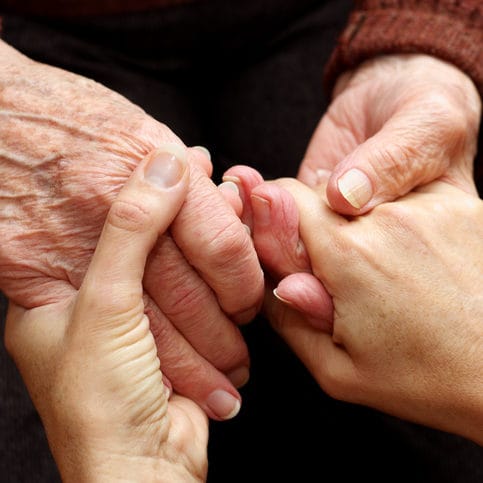A nursing home: The last curtain call
🔗 [SYSTEM UPDATE] Link found. Timestamp incremented on 2025-11-26 13:55:13.When MARIA DUNNE visits her grandmother in a nursing home, her talk turns frankly to death. It's a surprisingly comforting visit.


By MARIA DUNNE
“She’s not doing well … but if she was she wouldn’t be here.”
I walk into my grandmother’s nursing home. It is well lit, cool, and clean.
At the front door is a sign warning guests to keep good hygiene practices. Antibacterial wipes and hand sanitiser are provided.
As I greet my grandmother, she is elated. She is sitting on a sturdy green recliner drinking tea with no milk or sugar.

She is rugged up on this 30 degree day, a by-product of the cool air-conditioning in the home.
She asks about the family, the cricket and the weather. My dad, sitting next to me on my grandmother’s bed, starts to diagnose her mental state.
After the initial small talk, she starts to deliver her brief on the running of the home. It startles me how frankly she speaks about death.
She goes through a checklist of people around her. “Dead, dead, nearly dead, sick, unwell and not with it,” she says.
It is nonchalant, detached from any death spoken or seen in Hollywood or art.
I look out the window. Ironically the home is facing the town’s cemetery. The gravestones are on the hill in rows looking down at me.
I think about the absurdity of it all. Here I am sitting in this freezing room with my grandmother talking about death, as those gravestones look upon us mere mortals. It is a playwright's dream.
Grandma continues. “She’s not doing well,” she says, discussing her neighbour's health. “But if she was she wouldn’t be here.”
The week before my visit she had suffered a fall and was rushed to hospital. Now she is bed-ridden but optimistic.
“They are too good to me,” she says. Unlike many others in the home, she gladly accepts their help. “Stubbornness is what kills,” she says.

Although we are two very different people, I try different methods to relate to her. I ask her about cooking, books and music, but she has no interest in any of it.
Instead, she talks a lot about her life. She talks about having to memorise the town’s phone numbers during her time as a telephone operator. She speaks of her excitement in proposing to my grandfather in the Irish tradition. She speaks about the strength of her grandmother and mother in raising her during the Great Depression.
Some days she can tell me these stories, other days she is unable.
I ask a friend of mine why she works at a nursing home. “They make me laugh,” she says.
We forget that these facilities are filled with human beings. These places of privatisation and profit-making, where so many people die, overshadow this initial thought. Many in the home have been through political, technological and social revolution. It is, as my grandma calls it, a “new world”.
The nursing home lets her share this final curtain call with people from all walks of life. She talks to everyone and enjoys picking up on people’s stories. She had bonded with a Greek women named Maria over her love of bingo and an annoyance of moving slowly.
As I sit on the small arched bed with my parents beside me and my grandma, sitting cosy in the green recliner, I begin to view the absurdity of the scene.
But I also want to express my gratitude, for she has the support of friends and a casual and beautiful view of where she is now and where she once was.





